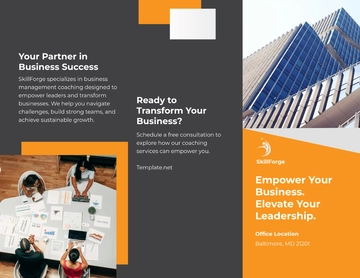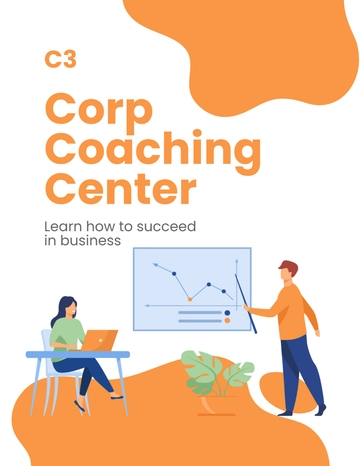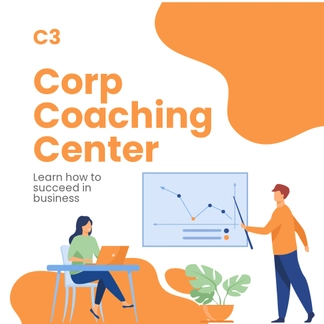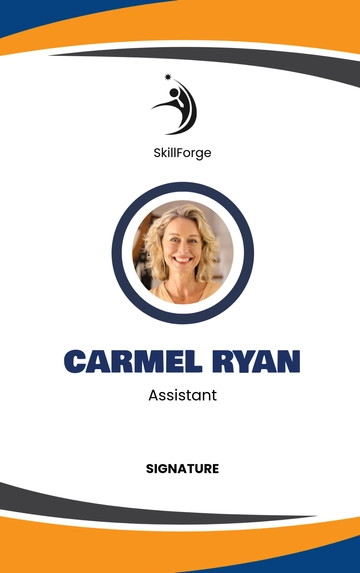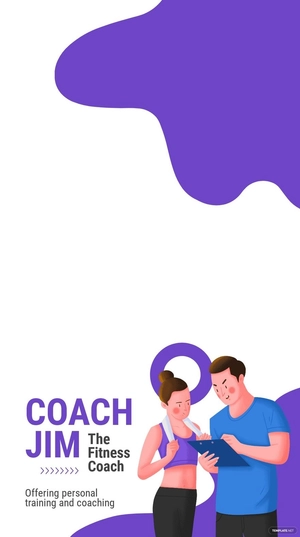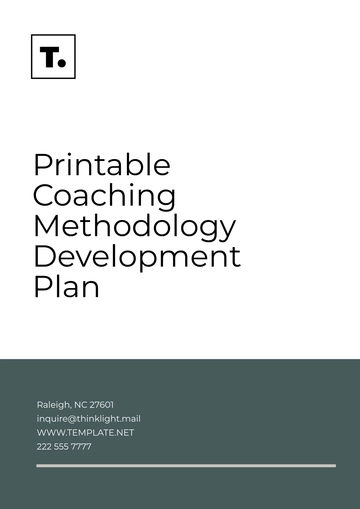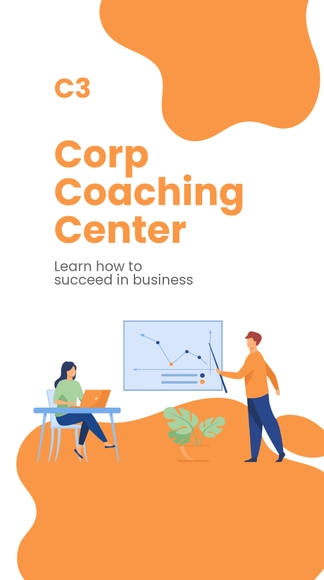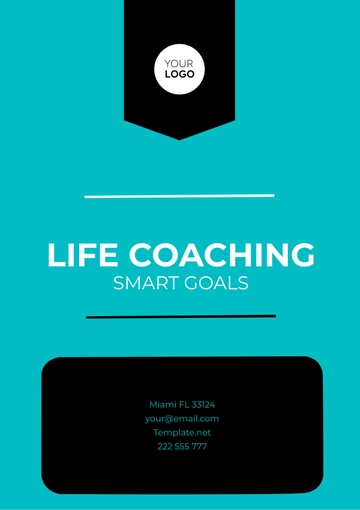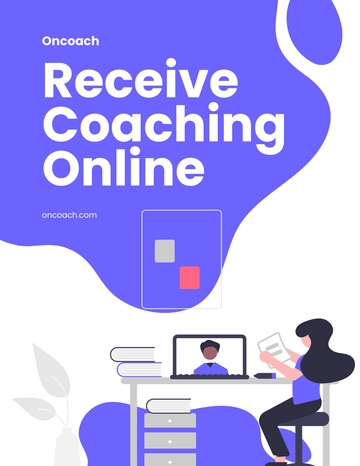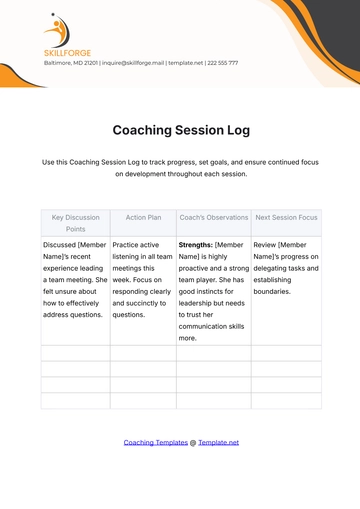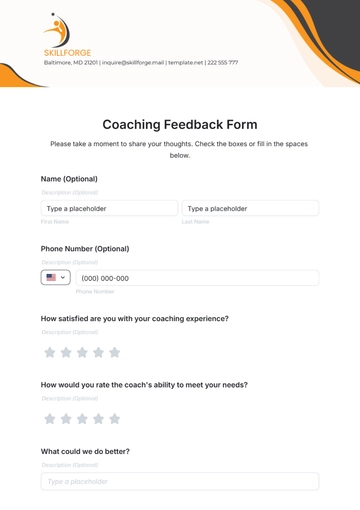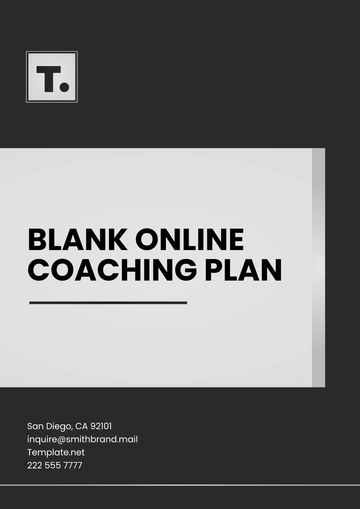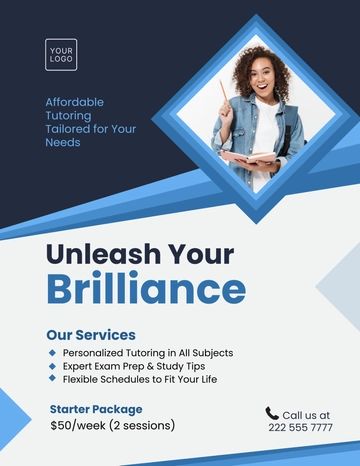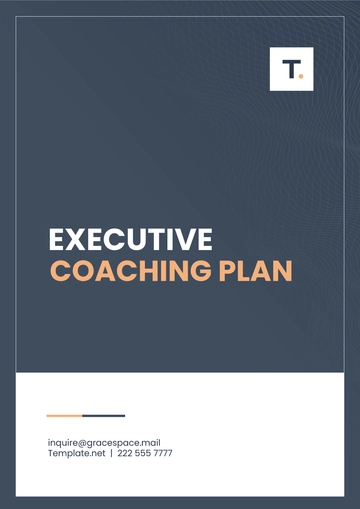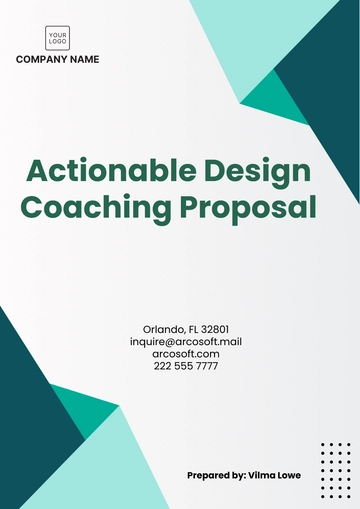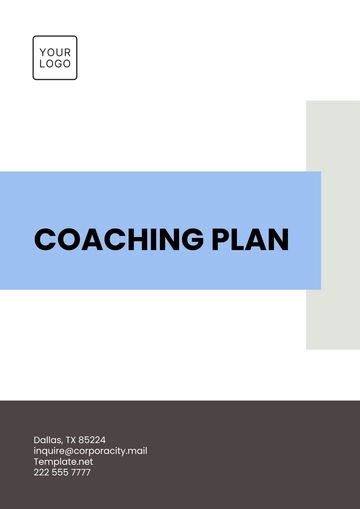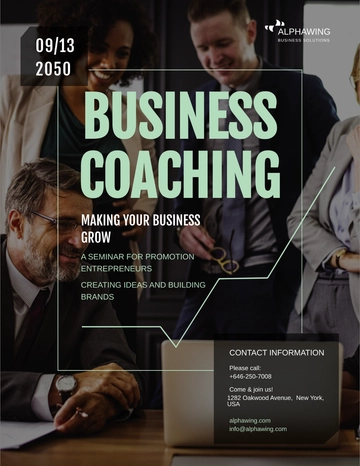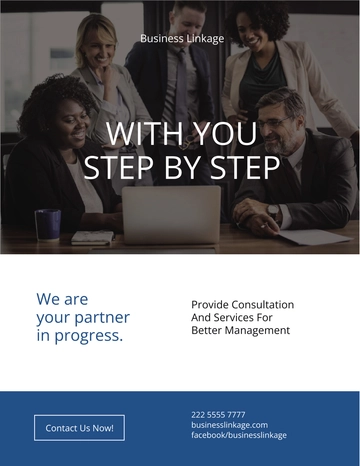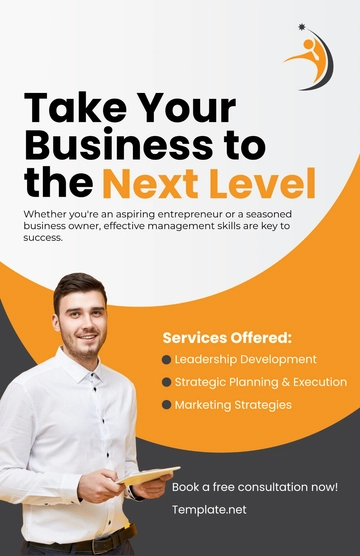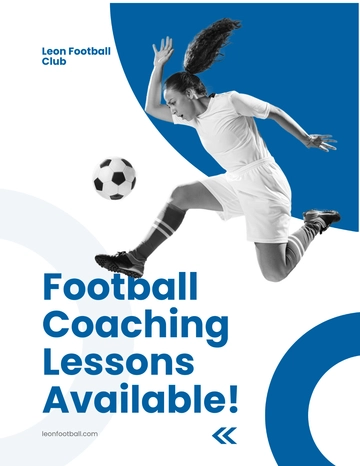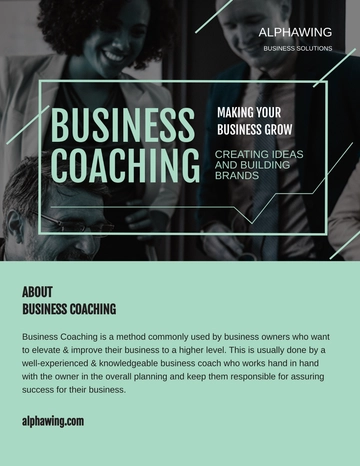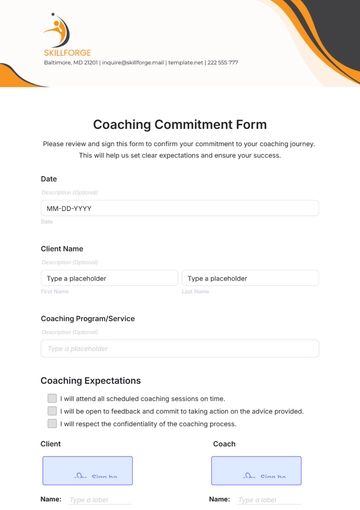Free Coaching Case Study

I. Introduction
In this section, provide an overview of the coaching engagement, including background information about the client and the context of the coaching relationship. Describe [Client Name]'s industry, position, challenges faced, and reasons for seeking coaching. Highlight any initial assessments or discussions that shaped the coaching objectives.
II. Client Background and Goals
[Client Name] had a diverse background in Technology and Software Development, with [number] years of experience in [specific roles]. Upon entering the coaching engagement, they expressed goals centered around Enhancing leadership skills, improving team collaboration, and managing work-life balance. These goals were identified through initial assessments, interviews, and discussions, focusing on Leadership development, team dynamics, and stress management.
III. Coaching Approach
The coaching approach employed for [Client Name], involved a blend of transformational coaching and strengths-based coaching, tailored to address her unique needs and objectives. This section details the strategies, frameworks, and tools utilized during the coaching process to support [Client Name] growth and development.
Transformational Coaching: This approach focused on helping Sarah identify and challenge limiting beliefs, develop a vision for her leadership style, and create actionable steps to align her behaviors with her leadership goals.
Strengths-Based Coaching: Leveraging tools such as the StrengthsFinder assessment, the coaching process emphasized Sarah's inherent strengths and how she could leverage them to improve team dynamics, communication, and decision-making within her role as a Team Lead.
IV. Coaching Outcomes
Detail the outcomes and achievements resulting from the coaching engagement with [Client Name]. Highlight tangible results, behavioral changes, skill enhancements, and any other measurable impacts observed throughout the coaching journey.
4.1 Achievements
Leadership Style Refinement: Sarah successfully refined her leadership style by implementing proactive communication strategies within her team, resulting in a 20% reduction in miscommunication-related errors in project deliverables.
Team Collaboration Enhancement: Through coaching interventions focusing on team dynamics and collaboration, Sarah facilitated cross-functional workshops that improved interdepartmental cooperation, leading to a 15% increase in project completion rates ahead of schedule.
Work-Life Balance Strategies: Sarah implemented personalized work-life balance strategies, including time management techniques and boundary-setting practices. As a result, her overall job satisfaction improved by 30%, contributing to higher productivity levels within her team.
4.2 Impact
Performance Improvement: Sarah's enhanced leadership and communication skills directly contributed to a 25% increase in team productivity and a noticeable improvement in project quality, as evidenced by client feedback and performance metrics.
Mindset Shift: The coaching journey fostered a growth mindset in Sarah, leading to increased resilience in handling challenges and a more proactive approach to personal and professional development opportunities.
Relationship Building: Sarah's improved leadership approach positively impacted team morale, fostering a collaborative and supportive work environment that encouraged innovation and creativity among team members.
V. Lessons Learned
5.1 Challenges
Time Management: Balancing coaching sessions with Sarah's workload was managed by scheduling sessions during non-peak hours and using virtual platforms for flexibility.
Resistance to Change: Overcoming team resistance involved collaborative goal-setting, clear communication on change benefits, and continuous support and feedback.
5.2 Success Factors
Open Communication: Transparent channels fostered trust and allowed candid discussions on progress and challenges.
Goal Clarity: Clear, measurable goals guided by focused coaching interventions, ensuring alignment with desired outcomes.
Feedback and Reflection: Regular feedback and reflective exercises helped track progress, identify growth areas, and reinforce positive behaviors.
VI. Recommendations for Future Engagements
6.1 Best Practices
Customized Coaching Plans: Tailor coaching plans to individual client needs using diverse coaching methodologies.
Regular Progress Reviews: Conduct frequent progress reviews to track development and adjust strategies as needed.
Utilize Technology: Leverage virtual platforms for flexible communication and accessibility.
6.2 Areas for Development
Advanced Coaching Techniques: Invest in coach development for emotional intelligence and conflict resolution.
Feedback Culture: Foster open feedback and reflection for continuous improvement.
Integration with Goals: Align coaching with organizational objectives for enhanced impact.
- 100% Customizable, free editor
- Access 1 Million+ Templates, photo’s & graphics
- Download or share as a template
- Click and replace photos, graphics, text, backgrounds
- Resize, crop, AI write & more
- Access advanced editor
Elevate your coaching practice with our Coaching Case Study Template from Template.net. Tailored for showcasing success stories and methodologies, this editable template is customizable in our Ai Editor Tool. Craft detailed case studies to inspire your audience and showcase your coaching expertise effectively. Informative and descriptive, these studies will engage and enlighten your clients and peers alike.
